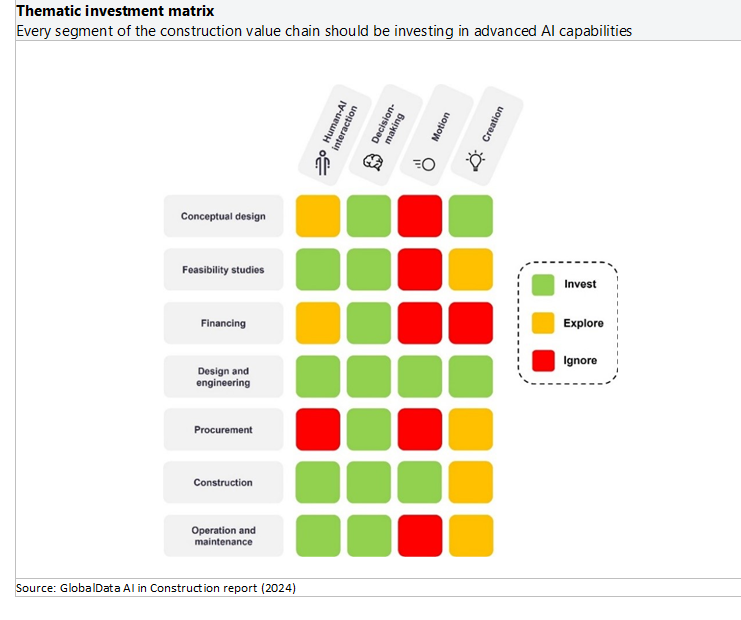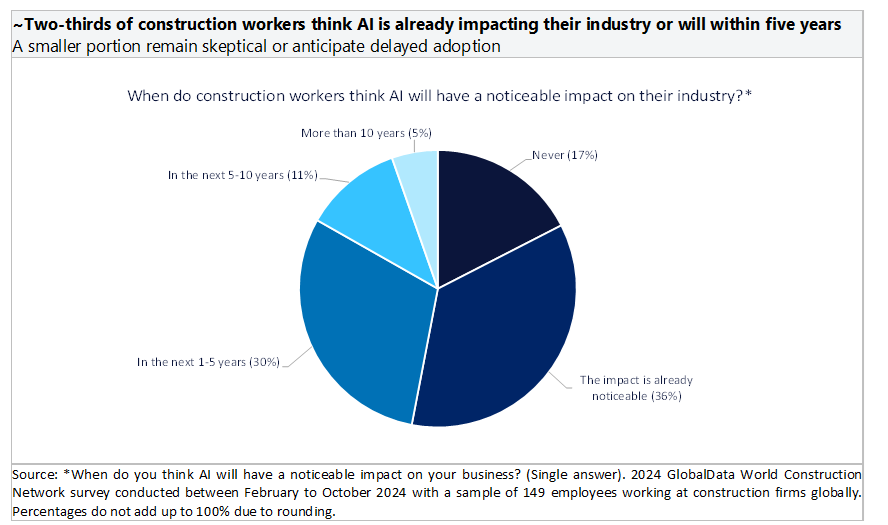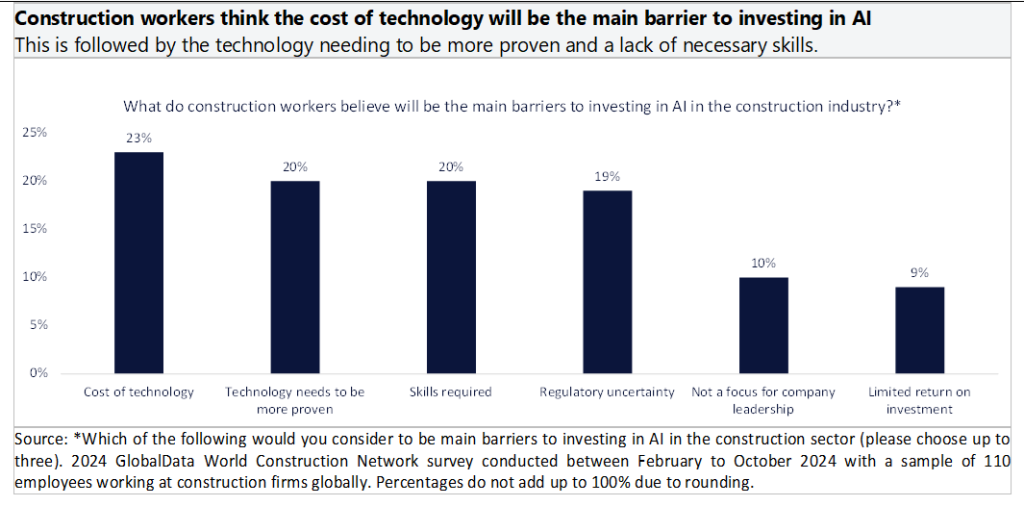The construction industry is renowned for its strict project timelines, large sites to manage, hazardous working conditions and tight profit margins. This means that universal challenges such as supply chain disruptions, growing environmental social governance (ESG) requirements and an ageing workforce, disproportionately affect the construction industry.
To overcome these challenges while coping with increased demand from a growing global population, construction companies must embrace technologies such as AI, the Internet of Things (IoT) and robotics.
The benefits of AI in construction
The construction industry is widely considered one of the least digitalised. However, the potential applications of AI in construction are wide-ranging. AI’s predictive analytics can help construction companies manage their projects, maximising efficiency and minimising costs. Computer vision can facilitate large-scale data collection, detect safety hazards and prevent workplace injuries. AI-enabled autonomous construction machinery could supercharge efficiency and keep human workers out of harm’s way.
Construction companies should be aware of the importance of investing in AI. The matrix below details the areas of AI where construction companies should focus their time and resources. GlobalData recommends that construction companies invest in technologies shaded green, explore the prospect of investing in technologies shaded yellow, and ignore technologies shaded red.

All construction companies must invest in decision-making AI capabilities, no matter which value chain segment they sit in. Decision-making capabilities include calculating, forecasting and planning. From creating conceptual designs through financing projects to constructing buildings, decision-making AI will help construction companies make data-driven decisions.
The only segment of the construction value chain that should not even explore investing in human-AI interaction is procurement. At every other stage, AI-enabled computer vision will help decision-making capabilities by providing detailed, up-to-date data.

US Tariffs are shifting - will you react or anticipate?
Don’t let policy changes catch you off guard. Stay proactive with real-time data and expert analysis.
By GlobalDataThe motion capability of advanced AI will only be useful to certain segments of the construction value chain, but it will be invaluable in these segments. In construction, as well as design and engineering, investing in AI-enabled autonomous construction equipment will help remove health and safety hazards, improve the efficiency of construction projects and alleviate some of the industry’s recruitment issues. Many sections of the construction value chain should explore the possibility of AI creation.
This advanced AI capability is also known as generative AI, and uses machine learning algorithms to create content such as text, images, video, audio and software code. Generative AI exploded onto the scene in late 2022 when OpenAI released ChatGPT. In the design stages of the construction value chain, AI’s creative capabilities could speed up processes by generating building designs. AI chatbots with natural language capabilities could be used in segments such as construction or operation and maintenance to help answer construction workers’ questions.
The state of AI in construction
According to a 2024 GlobalData World Construction Network survey, almost two-thirds of construction workers globally believe AI is already having a noticeable impact on their industry or will do so within the next five years. Meanwhile, almost one in five construction workers think AI will never impact their industry.

According to another 2024 GlobalData World Construction Network survey, 23% of construction workers believe the cost of technology will be the main barrier to investing in AI in their industry. This is followed by the technology needing to be more proven (20%), as well as a lack of necessary skills (20%) required for its successful implementation.

Cost will be a limiting factor for smaller construction companies, but the increase in productivity that AI solutions offer makes it a necessary investment for those with the means to do so. Technology transformation teams within construction companies must effectively demonstrate the tangible benefits and dependability of AI solutions. It is crucial for these teams to clearly communicate the key advantages of this technology, while also addressing employees’ concerns about potential job displacement. By showcasing how AI tools can work in collaboration with workers, rather than altogether replacing them, construction companies can successfully navigate the challenges associated with implementing much-needed AI solutions.






